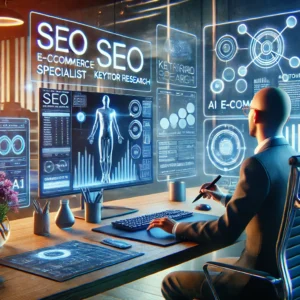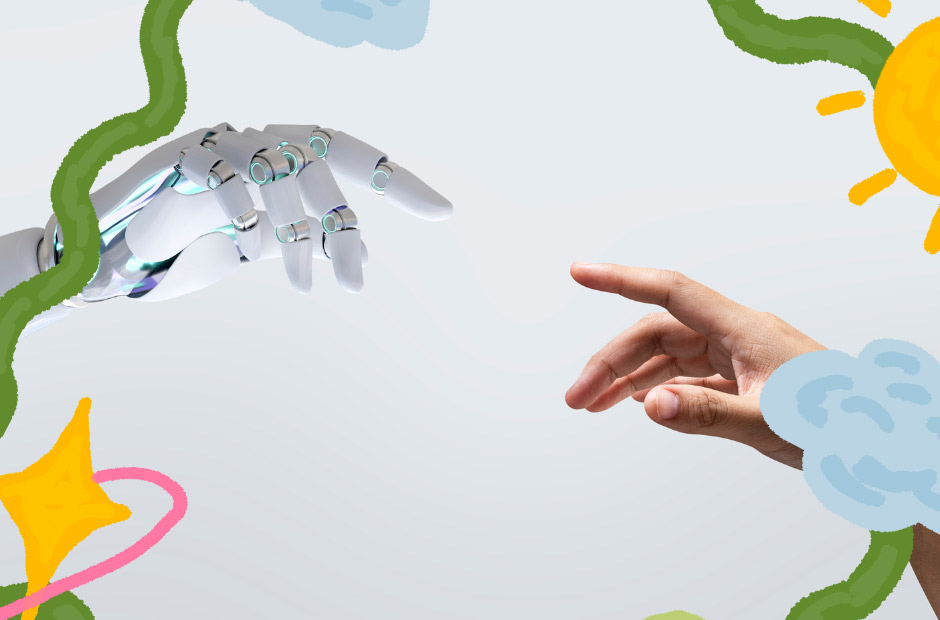Defining Intelligence: Human vs. Artificial
Human intelligence, a marvel of nature, is a complex and dynamic ability shaped by emotions, experiences, and reasoning. Unlike artificial intelligence, which relies on algorithms and vast amounts of data, human intelligence allows for abstract thought, self-awareness, and adaptability in unpredictable situations. The human brain can learn from minimal input, make decisions based on intuition, and understand emotions, which machines still struggle to replicate. While AI can process and analyze data faster than humans, it lacks the intrinsic ability to feel, empathize, and apply moral reasoning.
On the other hand, artificial intelligence is designed to perform specific tasks efficiently, such as recognizing patterns in images, automating customer service processes, and making stock market predictions based on statistical analysis. However, these abilities are limited to predefined parameters, and AI lacks the depth of human intelligence, including emotions, creativity, and consciousness. While AI can simulate intelligence, it does not possess true understanding or self-awareness.
The Evolution of AI: From Rule-Based Systems to Deep Learning
The journey of AI began with rule-based systems, where machines followed strict instructions to perform tasks. These early systems lacked flexibility and required human intervention to adapt to new scenarios. Over time, machine learning emerged, allowing AI to learn from data and improve performance without explicit programming. Deep learning, a more advanced form of machine learning, enables neural networks to mimic aspects of human thought and pattern recognition, essentially allowing AI to learn from its own mistakes and experiences.
Today, AI powers everything from voice assistants to self-driving cars, demonstrating remarkable progress in problem-solving and decision-making. However, despite these advancements, AI remains dependent on the data it is trained on. Unlike human intelligence, which can learn and adapt from minimal exposure, AI requires vast datasets and extensive training to function effectively. This fundamental difference highlights the gap between machine efficiency and human cognition.
Consciousness and Creativity: Can Machines Develop Self-Awareness?
One of the most debated questions in AI research is whether machines can achieve self-awareness. Human intelligence encompasses emotions, creativity, and the ability to reflect on one’s existence. Conversely, AI operates based on algorithms and lacks the subjective experiences that define consciousness. While AI can generate art, compose music, and even write articles, these actions are based on learned patterns rather than genuine creativity or emotional depth.
A key aspect of human intelligence is imagining and innovating beyond existing knowledge. Machines, however, do not possess independent thoughts or emotions. Even with advanced natural language processing, AI does not comprehend meaning like humans do—it merely predicts and generates responses based on statistical probability. While AI can simulate certain aspects of human intelligence, true self-awareness remains an elusive concept that machines have yet to achieve.

Limitations of AI: What Machines Still Can’t Do
Despite the rapid advancement of AI, human intelligence continues to outperform machines in critical areas. One of AI’s biggest limitations is intuition. While AI can analyze patterns and probabilities, it cannot make instinctive decisions without data. Human intelligence, shaped by life experiences and emotions, allows quick, intuitive decision-making even in uncertain situations.
Additionally, morality and ethics remain uniquely human traits. AI can be programmed with ethical guidelines such as not causing harm to humans or respecting privacy, but does not possess an intrinsic sense of right and wrong. Human intelligence allows for ethical reasoning based on emotions, social norms, and cultural influences—something AI cannot genuinely replicate. Complex decision-making remains a domain where humans surpass machines, particularly in unpredictable or morally challenging scenarios.
Furthermore, emotional intelligence is another limitation of AI. Humans can interpret emotions, express empathy, and form meaningful relationships. While AI can recognize facial expressions and detect sentiment in text, it lacks a true understanding of emotions and the ability to experience them firsthand. This limitation hinders AI from fully integrating into roles that require deep emotional connections, such as counseling or caregiving.
The Future of AI and Human Coexistence
As AI continues to evolve, the question remains: Will machines complement human intelligence or eventually surpass it? The most likely scenario is one of collaboration rather than competition. AI can enhance human capabilities by automating repetitive tasks, improving efficiency, and assisting in data-driven decision-making. This potential for enhancement is a reason for optimism about the future of technology. However, it is unlikely to replace human intelligence entirely, as emotions, creativity, and moral reasoning remain uniquely human traits.
The integration of AI into society raises ethical and philosophical questions. How much autonomy should AI have? Can AI be trusted with critical decision-making? These concerns highlight the need for responsible AI development, ensuring that machines remain tools to assist rather than replace human intelligence.
While AI may continue to evolve, it is unlikely to achieve true consciousness or independent thought. Machines will excel in specific areas, but the depth of human intelligence—shaped by emotions, creativity, and self-awareness—will remain unparalleled. The future of AI lies in a symbiotic relationship where machines enhance human potential while preserving the unique qualities that define us.
